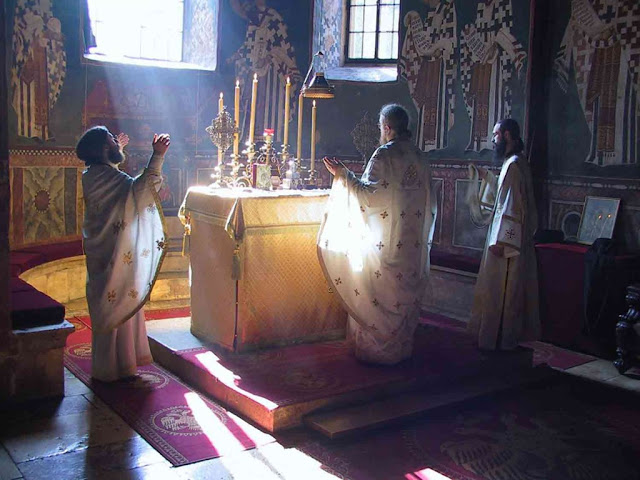
“Behold, how good and pleasant it is when brothers dwell in unity!”–Psalm 133:1
While there are many wonderful and holy pastors who labor in Christ’s vineyard, many others seem to experience problems of a peculiar nature. One way to identify the source of these problems to call it the lack of mentoring or apprenticeship. The situation is really quite simple: a newly-ordained priest gets assigned a rector and the only priest of a parish, which may be either in a remote location or the only Orthodox parish in a city. The dean may be too far and too busy to visit very often, the bishop may come once a year, other priests may visit only occasionally and not for the explicit purpose of offering any mentoring or advice. Thus, the newly-ordained priest is left to his own devices (and vices). Moreover, a priest is the leader of his community, and even older parishioners hesitate to play a mentoring role, and it would certainly not be their place to offer pastoring advice. Very few priests seem to be lucky enough to have real mentors who are actively involved in their lives and guide them in their spiritual and professional growth. There are some factors which could potentially mitigate the negative effects of the lack of mentoring of young or newly-ordained priests.
First, advanced age and Orthodox life experience may help deal with the lack of mentoring. In the U.S., however (and elsewhere, I presume), many priests are ordained too young–they are not yet fully formed as individuals, they can be impulsive, idealistic, see things in “black and white,” they have not yet had sufficient time to subdue their passions. Another category of candidates for ordination is zealous converts to Orthodoxy. They seem to be “on fire” for the faith, zealous for the Typicon and the canons, attend all services and read the Desert Fathers to their toddlers. Zeal, however, is not a good indicator of spiritual maturity. These converts may or may not be ready to teach others the Orthodox way of life mostly because they are not proficient at it themselves. The crux of the problem is, perhaps, in the lack of aspirants to the holy priesthood. Candidates are not always advanced to the holy orders based on their virtues, but rather on the lack of obvious vices or impediments coupled with the desperate need for more priests.
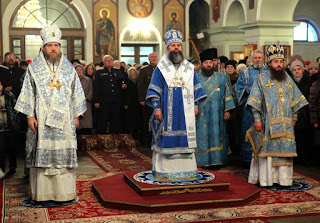
Second, fellowship with other clergy and sharing of experience may mitigate the lack of mentoring to some degree. Fellow priests are not senior mentors and cannot resolve all problems, but they can offer some advice and attempt to correct the most grievous problems if they notice them. In the U.S., however, there are too many parishes that are too far away from any other Orthodox communities. Some parishes are so remote that there are simply no other Orthodox priests around, and the bishop may visit once a year at best or even less frequently. Even in places where there may be other Orthodox churches, the frequency of clergy fellowship meetings may not exceed one per month, and level on which priests interact with each other may be only superficial–an occasional luncheon, a lenten Presanctified–not true and involved mentoring.
What happens in the absence of real mentoring is detrimental both to the spiritual life and formation of the priest and the life of his parish. In the absence of some system of checks and balances, the priest may be forced to “improvise”–both in his own spiritual journey and in the way he leads the parish. Any number of erroneous ideas, beliefs, practices, and “traditions” may creep in. Many years ago, I have been to parishes that had only been in existence for a few years, and yet they proudly told of their “local traditions” when asked why they served in a way that was different from the normative way in that diocese. And no, the parish had not been founded by a holy elder who brought with him ancient traditions from some famous monastery.
Isolated, unformed, unchecked priests may become their own local “patriarchs” and create their own peculiar brand of Orthodoxy–mostly because they have no other choice. And while I celebrate much diversity, the kind of diversity that stems from basic ignorance or lack of formation is, perhaps, to be avoided through purposeful mentoring of priests. In my opinion, no priest should ever begin his ministry as a rector. Rather, he should apprentice for a minimum of five years under a much more experienced older priest before getting his own parish.
Just as a lay person should not be a solitary practitioner of Orthodoxy lest he go astray, in the same way a priest should not be a solitary practitioner of pastoral ministry. The only ones that could get away with being far away from senior clergy are the ones who are mature as Christians, full of the Holy Spirit, and wise and experienced as pastors. For the rest of us, it is good to stick together, help each other, support each other, receive mentoring from those who are older and wiser, offer mentoring to those who are younger and less experienced, be evaluated by peers and receive feedback on our ministry.
It is a fact that in many cases in this country, the circumstances are such that less-than-perfect situations are what we have to work with. But I think that if these issues were brought up to the forefront of the Church’s consciousness and discussed frankly and openly, much could be done to improve this particular aspect of the life of the Church. In order to do that, the Church needs to re-evaluate its chronic condition of living in the mode of “damage control” and move toward purposeful proactive pastoral care for pastors. We are developing models and practices for pastoral care for our flock, and this is very good indeed. But we must not let our pastors “slip through the cracks.” We must recognize that priests are also humans, they are also Christ’s flock, they are also struggling to lead a Christian life, and they are also in need of pastoral care.
Parallel to pastoral care for parishioners, models and practices of pastoral care for pastors should be implemented and supported by the Church. Some of the healthy practices that come to mind are frequent (monthly?) visits and evaluations by the dean, frequent (monthly?) opportunities for confession and edifying fellowship with an older priest, frequent (weekly?) telephone check-ins from a dean or a bishop, regular (yearly?) spiritual retreats for pastors (organized and paid-for by the Church), sabbaticals every five to seven years, and many others. Of course, these are only random ideas, and a much more coherent approach toward this matter is desperately needed. But I firmly believe that the efforts necessary for this project would pay off many times over by keeping our priests and our parishes strong, stable and healthy.

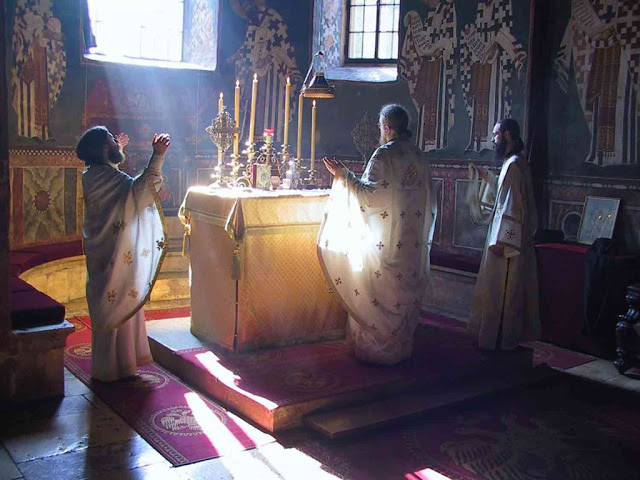
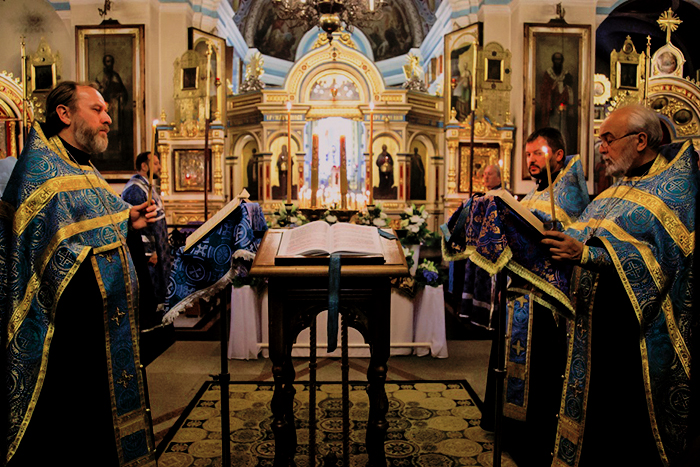
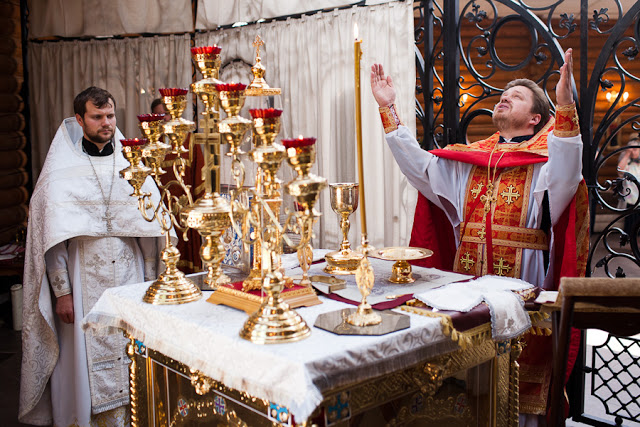

I would add: newly ordained priests who are rejected by other priests for not being adequately ethnic or close enough to their communion. I know a priest who was censured for being Western Rite to the extent that for over a decade he was kept from fellowship with other priests. Likewise he heard nothing from his bishop for many years. What few congregants he had finally left. He imploded. His marriage ended. All from lack of love and neglect. Many people think that a priest has to be some kind of hero who can withstand that kind of treatment. He is a true saint if he can. Most of us can't.